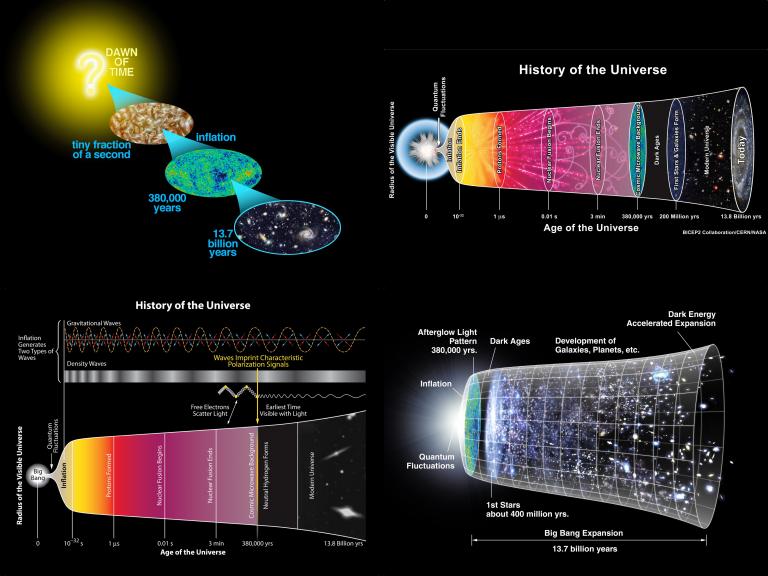 Polls show that “spiritual but not religious” is becoming an increasingly popular option in the United States. According to the Pew Research Center, 27 percent of the population now fall into this category, up 8 percent from 2012.
Polls show that “spiritual but not religious” is becoming an increasingly popular option in the United States. According to the Pew Research Center, 27 percent of the population now fall into this category, up 8 percent from 2012.
Whether this is good or bad depends on your point of view. According to some commentators, mere spirituality is an empty position that appeals most to people who are preoccupied with believing niceties and unable to bear the demands that religion makes. Others, including me, think exploring spirituality beyond religion is a necessary step if we are to collectively realize more coherent and plausible spiritual worldviews, and that it should be actively encouraged.
The fact is that God is not any one, single idea, but a family of different hypotheses connected by a common theme. This is not a unique property of the idea of God. For example, there are literally hundreds of different versions of the theory of cosmological inflation—the idea that the early universe underwent an extremely brief moment of exponentially accelerating expansion. Discovering that one of these models is false doesn’t necessarily tell you anything about the truth or falsehood of the many others.
The idea of God is similar. There are many different ways in which to model the divine, and having reasons to doubt one version does not negate the possibility that truth sits somewhere among the remaining ones.
Religions have historically had the loudest voices over what God is, so it’s not surprising that religious accounts have predominated human thought.
Core claims about God in traditional Christianity include that he once lived on Earth as Jesus, that Jesus’s crucifixion made possible our redemption from sin, and that he will ultimately judge the lives of everyone before separating us between heaven and hell.
Islam tells a different story at several theological junctures. For example, while Islam agrees that God will judge people for how they live, it denies that he ever lived as Jesus, and does not see all humans as sinful merely because of what Adam and Eve did.
The Start of Something?
The thing to note about these accounts is that they involve a large number of specific claims about God, and not one of them is essential to the very idea of a divine being. It is in no sense necessary to believe that God judges and punishes, or engages in acts of revelation to get a message out to humanity, or is preoccupied with spiritual wrongdoings known as “sin.”
Thousands of years of religion have normalized the association of these ideas with divinity, but you can easily believe in the existence of a divine being without also believing in these religious accompaniments.
Of course, religions claim it’s important to believe as they teach, even if faith is needed to bridge the gap. However, does it really make sense that God would seek to convey crucial messages to humanity on the say-so of specific individuals? Or through books compiled in highly unlikely ways? Does it really make sense that God would seek to be acknowledged and worshipped, or regulate what people can and can’t do?
It is reasonable to doubt accounts of God that depend on claims like this. Religions should be seen in the same light as early theories about the cosmos or the causes of disease. While we can appreciate them as first attempts to understand a bewildering and complex universe, they are also the kinds of explanations you would expect to arise when so little about the world was known.
Happily, just as with the failure of a particular scientific model for cosmological inflation, the failure of a religion to provide a plausible and coherent account of God does not indicate that doing so is impossible.
This is why the increasing tendency of people in the United States to avoid identifying as religious may be the start of something positive, for it opens the door to new and interesting collective explorations of the idea of God.
Timothy Rowe is a philosopher and writer. His website is atheoryofus.net, and you can catch him on Twitter at @TimothyRowe.













